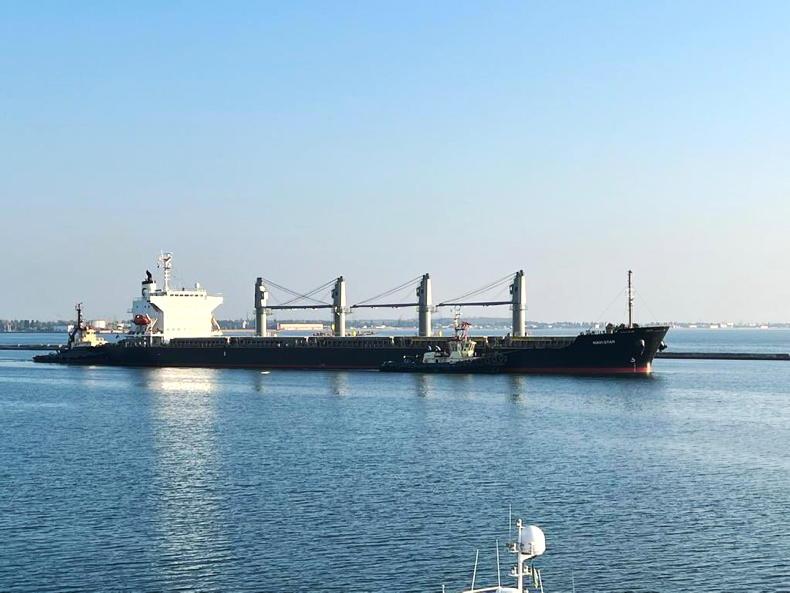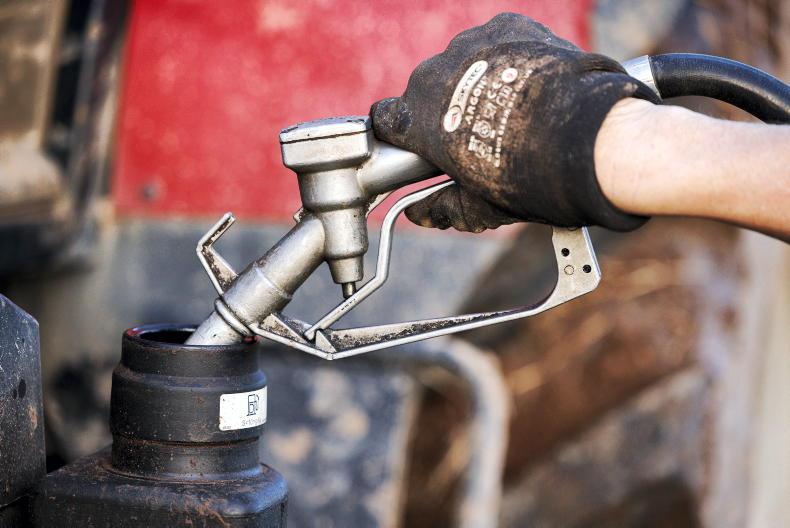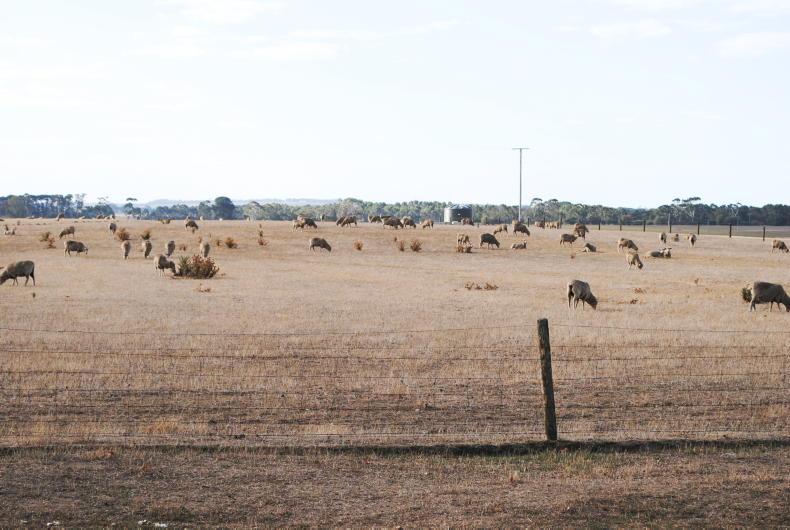Some 33,000t of Ukrainian maize is on its way to Ireland aboard the ship ‘Navi Star’, having left Odessa Port, Ukraine, on Friday morning.
The maize was ordered by Irish agri-food company R&H Hall and will arrive at Limerick’s Foynes Port and Dublin Port in two weeks, according to R&H Hall commercial director John Bergin.
Bergin described how the maize had been loaded at Odessa Port on the day Russia invaded Ukraine, 24 February 2022. He said it has been in storage on the boat since then and that R&H Hall was “in no man’s land”, unsure if it would ever be delivered.
Bergin said the maize is animal feed grade and that R&H Hall bought it “delivered to the port in Ireland”. There are no Irish employees on the Navi Star and the company doesn’t own the ship.
UN deal
The Navi Star’s movement came about following a deal brokered by the United Nations (UN) between Russia and Ukraine to recommence the shipping of blockaded grain at three of Ukraine’s ports.
The agreement, which was signed in Istanbul, guarantees the safe passage of commercial ships from Odessa and two other ports, which were up until this point cut off by a Russian naval blockade. A similar deal has been agreed to facilitate Russian grain and fertiliser exports.
The grain agreement will be in place for 120 days, and is renewable, according to deputy head of Ukrainian president Volodymyr Zelensky’s office, Andrii Sybiha. “Everybody wants to see now if the UN deal will actually return shipping to normal,” said Bergin.
While anticipating increased freight and insurance premiums for shipments from Ukraine, the R&H Hall commercial director said that if the trade fully reopens, the company will order further shipments of Ukrainian grain for delivery to Ireland.
With harvest in full swing across the country, some tillage farmers have questioned why Ireland was one of the first to take Ukrainian grain.
However, Irish Grain Growers Group (IGGG) chair Bobby Miller, highlighted that Ireland uses 6m tonnes of grain annually and 4m tonnes of this is imported.
“Thirty-three thousand tonnes, that’d only last us two days in Ireland,” he said.
He said that while “the timing of this is convenient, grain is being imported every day of the year”.
Miller said this shows that “we need to, and can, produce more grain in this country” and that “we need to increase tillage area”.
He said this will also help Irish agriculture reach its 25% emissions target.
Read more
Ukraine grain exports fail to quell supply concerns
Some 33,000t of Ukrainian maize is on its way to Ireland aboard the ship ‘Navi Star’, having left Odessa Port, Ukraine, on Friday morning.
The maize was ordered by Irish agri-food company R&H Hall and will arrive at Limerick’s Foynes Port and Dublin Port in two weeks, according to R&H Hall commercial director John Bergin.
Bergin described how the maize had been loaded at Odessa Port on the day Russia invaded Ukraine, 24 February 2022. He said it has been in storage on the boat since then and that R&H Hall was “in no man’s land”, unsure if it would ever be delivered.
Bergin said the maize is animal feed grade and that R&H Hall bought it “delivered to the port in Ireland”. There are no Irish employees on the Navi Star and the company doesn’t own the ship.
UN deal
The Navi Star’s movement came about following a deal brokered by the United Nations (UN) between Russia and Ukraine to recommence the shipping of blockaded grain at three of Ukraine’s ports.
The agreement, which was signed in Istanbul, guarantees the safe passage of commercial ships from Odessa and two other ports, which were up until this point cut off by a Russian naval blockade. A similar deal has been agreed to facilitate Russian grain and fertiliser exports.
The grain agreement will be in place for 120 days, and is renewable, according to deputy head of Ukrainian president Volodymyr Zelensky’s office, Andrii Sybiha. “Everybody wants to see now if the UN deal will actually return shipping to normal,” said Bergin.
While anticipating increased freight and insurance premiums for shipments from Ukraine, the R&H Hall commercial director said that if the trade fully reopens, the company will order further shipments of Ukrainian grain for delivery to Ireland.
With harvest in full swing across the country, some tillage farmers have questioned why Ireland was one of the first to take Ukrainian grain.
However, Irish Grain Growers Group (IGGG) chair Bobby Miller, highlighted that Ireland uses 6m tonnes of grain annually and 4m tonnes of this is imported.
“Thirty-three thousand tonnes, that’d only last us two days in Ireland,” he said.
He said that while “the timing of this is convenient, grain is being imported every day of the year”.
Miller said this shows that “we need to, and can, produce more grain in this country” and that “we need to increase tillage area”.
He said this will also help Irish agriculture reach its 25% emissions target.
Read more
Ukraine grain exports fail to quell supply concerns









SHARING OPTIONS